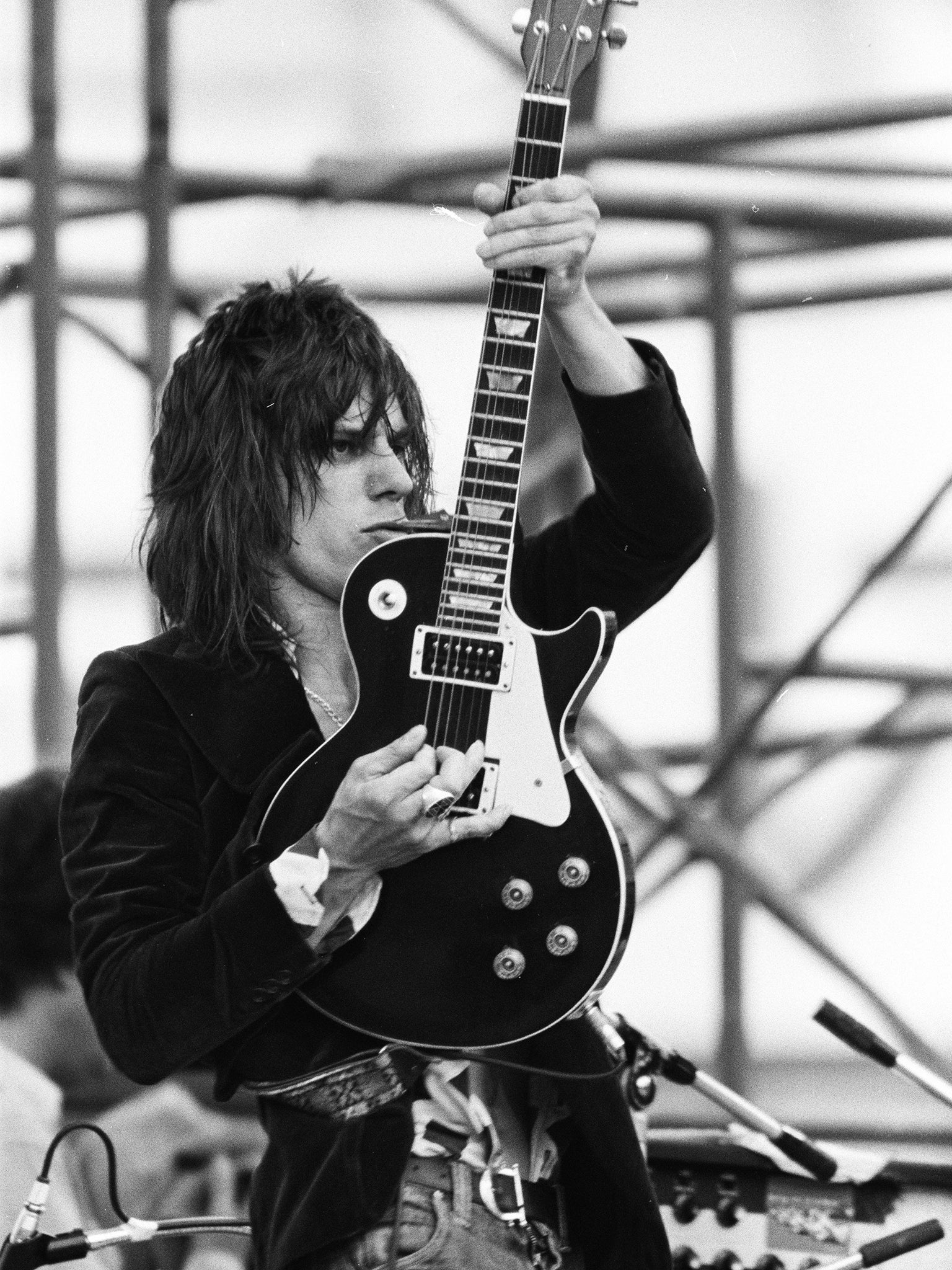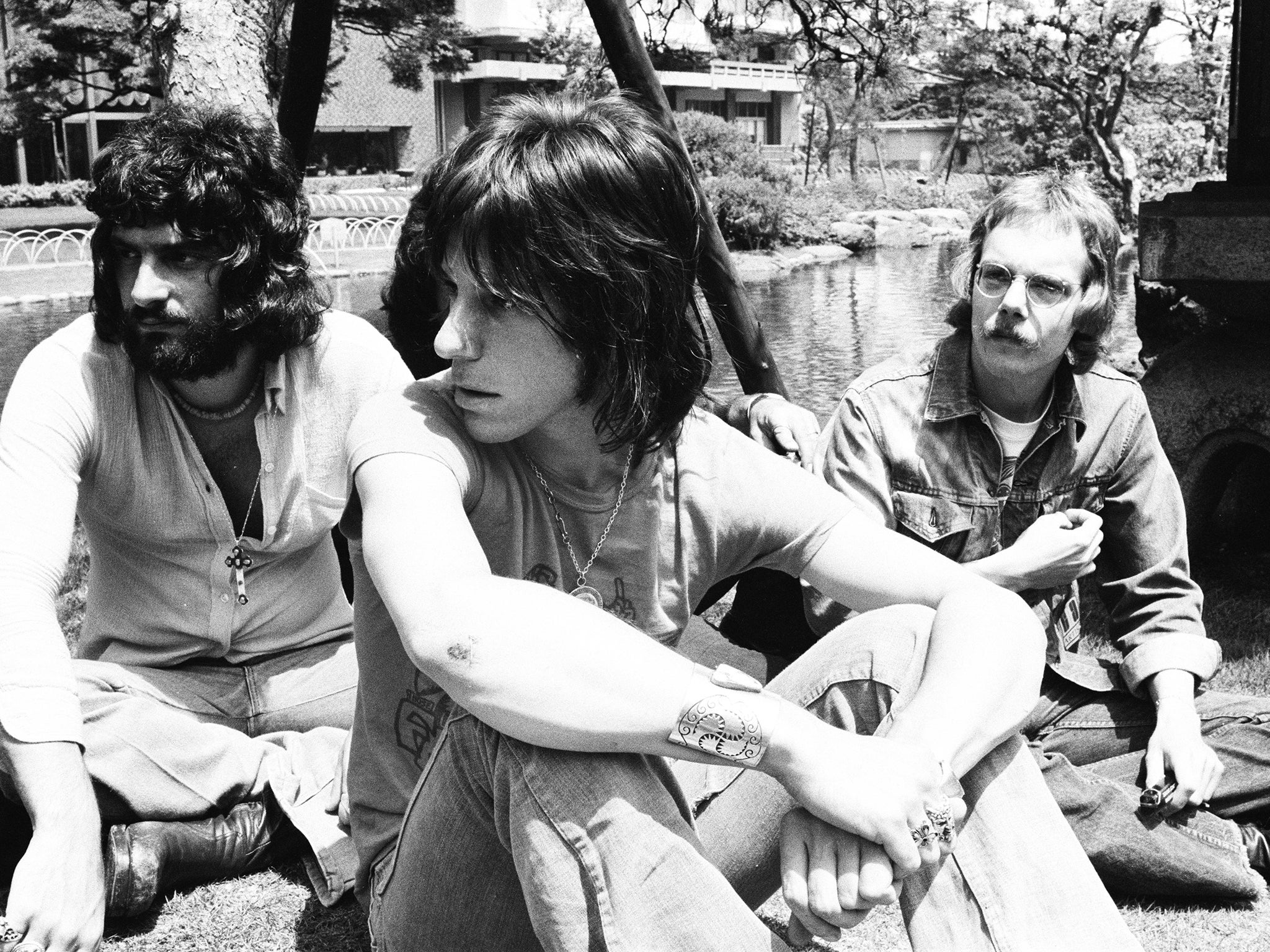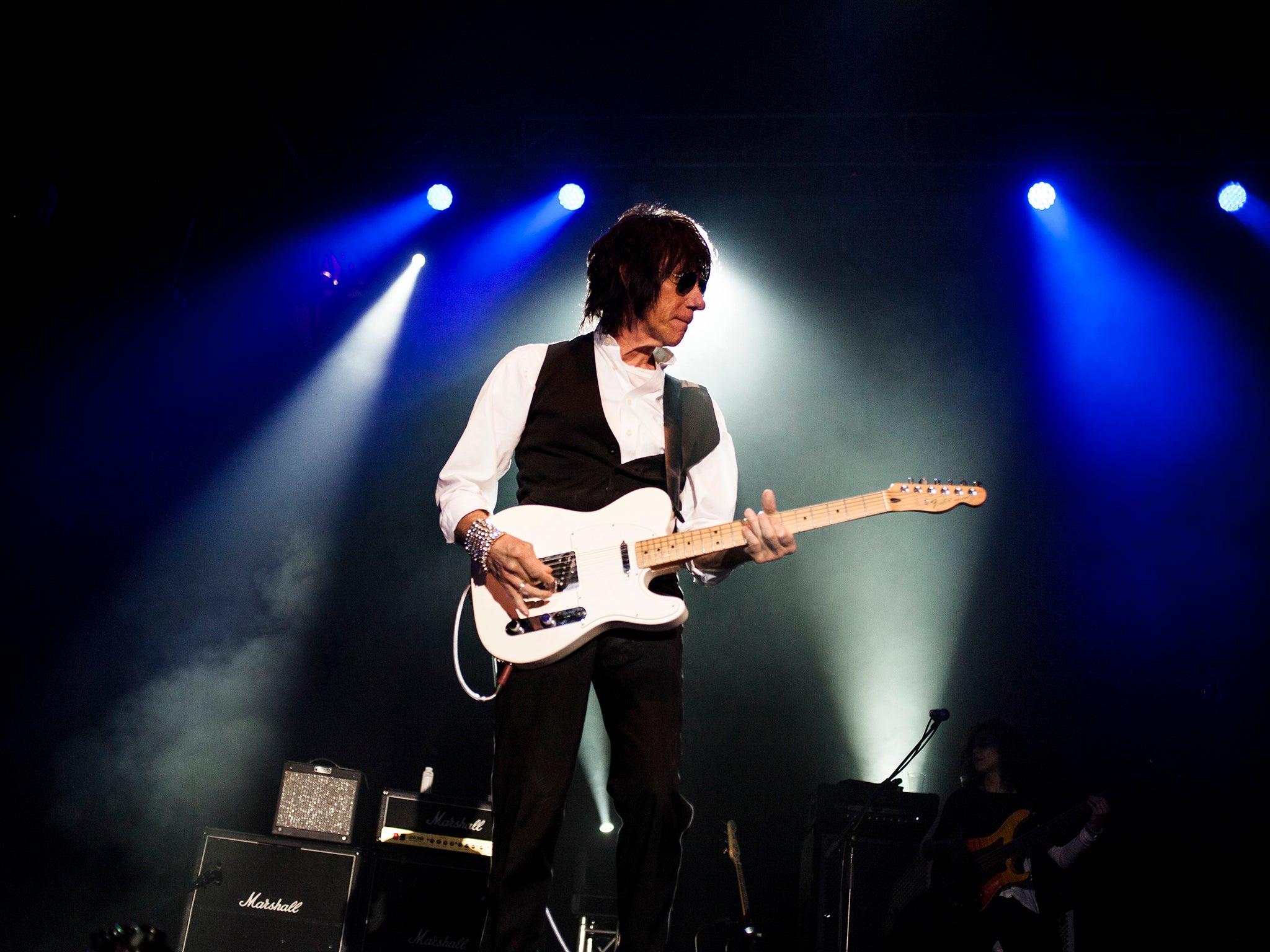Jeff Beck: Virtuoso guitarist and one of rock’s all-time greats
The musician’s time in The Yardbirds and subsequent music career helped define a genre

Your support helps us to tell the story
From reproductive rights to climate change to Big Tech, The Independent is on the ground when the story is developing. Whether it's investigating the financials of Elon Musk's pro-Trump PAC or producing our latest documentary, 'The A Word', which shines a light on the American women fighting for reproductive rights, we know how important it is to parse out the facts from the messaging.
At such a critical moment in US history, we need reporters on the ground. Your donation allows us to keep sending journalists to speak to both sides of the story.
The Independent is trusted by Americans across the entire political spectrum. And unlike many other quality news outlets, we choose not to lock Americans out of our reporting and analysis with paywalls. We believe quality journalism should be available to everyone, paid for by those who can afford it.
Your support makes all the difference.Jeff Beck, who has died aged 78, was one of the rock world’s guitar greats.
Despite being erratic, inconsistent and self-destructive, he kept the respect of critics and his peers with his virtuoso and inventive playing style.
He utilised distortion and feedback effects for dazzling performances in which he “bent” notes on the fretboard and enthralled audiences with delicious licks and teasing lead lines that demonstrated a talent for arrangement learned on the piano as a child.
While failing to find significant commercial success for most of his career, he was best known for his playing style and the musicians he performed alongside.
Beck first found fame with The Yardbirds before forming several short-lived incarnations of his own band.
Although he rarely sang, he scored a big hit as a solo artist with an out-of-character song, “Hi Ho Silver Lining”, written by Scott English and Larry Weiss. It made the Top 20 in both 1967 and on re-release five years later.
The singalong single even became a dance-floor classic, but Beck likened it to “having a pink toilet seat hung around your neck for the rest of your life”.
His earlier experience of having four Top 10 singles with The Yardbirds was never repeated with his own groups.
Beck joined in 1965 to replace Eric Clapton, who had recommended Jimmy Page, the future Led Zeppelin founder – another guitar legend – who turned down the offer and in turn suggested his friend Beck.
Spurring The Yardbirds on to experiment with different styles, his use of a fuzz box and feedback proved revolutionary on “Heart Full of Soul” (1965), a recording credited with helping to pioneer rock’s 1960s psychedelic sound.
On the gloomier “Evil Hearted You” (1965), billed as a double-A side with “Still I’m Sad”, Beck performed a solo described by one critic as “equal parts classical and James Bond soundtrack”.
The feedback returned for “Shapes of Things” (1966), while “Over Under Sideways Down” (1966), with elements of psychedelia, featured a riff composed by Beck that “made the song”, according to the group’s drummer, Jim McCarty.

Jimmy Page joined The Yardbirds towards the end of Beck’s time in the band, initially on bass, then as second lead guitarist.
The first Jeff Beck Group was formed in 1967, with the line-up including Rod Stewart as singer and Ronnie Wood first on rhythm guitar, then on bass, and a blues-style hard rock that proved influential.
Stewart proved to be the perfect foil to Beck, providing a magical combination in the way that Robert Plant and Jimmy Page would shortly afterwards in Led Zeppelin.
The group’s road manager, Peter Grant – who then guided Led Zeppelin to stardom – booked a US tour that began with them as support to the Grateful Dead.
Reviews proclaimed that they upstaged the headline act and followed in the footsteps of The Beatles by creating pandemonium among audiences.
Although failing to chart in Britain, Beck’s first album, with the group backing him, Truth (1968), featured several Beck-Stewart compositions and reached No 15 in the US.

Four more US tours followed, along with a 1969 album, Beck-Ola, which made the Top 40 on both sides of the Atlantic. But there was constant friction between Beck and his bandmates, and they split up later that year, with Stewart and Wood leaving to form The Faces.
Pianist Nicky Hopkins, who left first, described Beck as “totally unsuited to be leading a successful band”.
A second incarnation of the group, including drummer Cozy Powell, followed in 1970. They released two albums, Rough and Ready (1971) and Jeff Beck Group (1972), and toured Europe and the US before Beck called time in 1972.
He soon had a new line-up, but within months the five-piece band was reduced to a trio, with Beck playing alongside former Vanilla Fudge and Cactus members Tim Bogert, on bass, and Carmine Appice, on drums.
The “power trio” made just one LP, Beck Bogert Appice (1973), exciting musically but lacking good material, before breaking up in 1974.
The restless Beck went on to release occasional solo albums. The first, Blow by Blow (1975), was entirely instrumental and jazz-influenced, and his most successful LP. It was produced by George Martin and sold a million copies in the US, where it reached No 4 in the charts.

Geoffrey Arnold Beck was born in Wallington, Surrey, in 1944 to Ethel (née Dixie), who worked in a chocolate factory, and Arnold Beck, an accountant. His mother encouraged him to play the piano and he sang in a local church choir.
Influenced by Les Paul, he later switched to guitar and even built his own instrument.
On leaving Sutton East County Modern School, he studied at Wimbledon Art College and played guitar with Screaming Lord Sutch and the Savages, The Nightshifts and The Trident.
Then, with The Yardbirds, although he performed on most of their hit singles, the group released only one album, Roger the Engineer (1966, titled Over Under Sideways Down in the US), during his stint with them.
Beck’s other solo albums included Wired (1976), There & Back (1980), Flash (1985), Jeff Beck’s Guitar Shop (1989), Who Else! (1999), Jeff (2003), Emotion & Commotion (2010) and Loud Hailer (2016).
With Eric Clapton, he played three numbers for Amnesty International’s 1981 benefit concert The Secret Policeman’s Other Ball, at Drury Lane Theatre, London.
There was also a re-teaming with Rod Stewart for three minor hit singles in the 1970s, 1980s and 1990s.
Then, in 2014, Beck was paired with one of the new generation of pop stars, Joss Stone, for the single “No Man’s Land (Green Fields)”, which squeezed into the lower reaches of the charts.
Four years later, he and actor Johnny Depp recorded the John Lennon song “Isolation”, following it with a 2022 album, 18, that returned him to the Top 40.
His guitar playing was recognised with seven Grammy Awards, six for Best Rock Instrumental Performance and one for Best Pop Instrumental Performance. In 2014, he was presented with the Ivor Novello Award for Outstanding Contribution to British Music.
Beck’s first marriage, to Patricia Brown (1963-67), ended in divorce. He is survived by his second wife, Sandra Cush, whom he married in 2005.
Jeff Beck, musician, born 24 June 1944, died 10 January 2023


Join our commenting forum
Join thought-provoking conversations, follow other Independent readers and see their replies
Comments